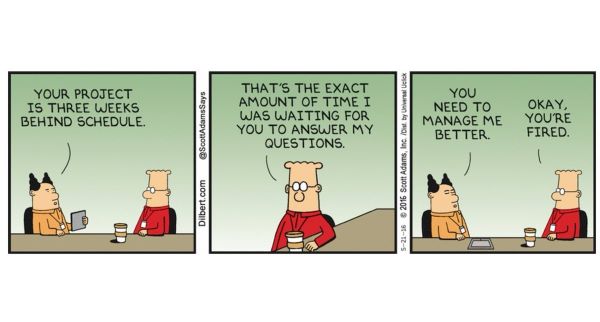Managing up, or managing your boss, is an essential skill at work. However, it’s also a concept that can also translate to your Dungeons & Dragons (D&D) games. Learning how to manage up—both with your boss and your Dungeon Master (DM)—can improve your professional performance, foster collaboration, and make the experiences at work and the gaming table smoother for everyone involved.
What Is Managing Up?
In a business sense, managing up refers to the proactive approach you take in working with your boss. It involves understanding their needs, expectations, and communication style to ensure that you’re meeting or exceeding their expectations while maintaining a strong working relationship. It’s not about manipulating your boss, but rather aligning yourself with their goals and needs to improve both your performance and the work environment.
Likewise, in D&D, managing up means working in sync with your DM. The DM, as the storyteller and guide of the game, has a particular vision for the campaign, but as a player, you also have your own ideas and character development to consider. It is all about supporting the DM’s vision while also contributing to the narrative in a meaningful way, ensuring the game remains engaging for everyone.
Managing Up with your Boss
- Understand Their Priorities
The first step to managing up is understanding what your boss values most. Do they care about hitting deadlines, creating innovative solutions, or fostering teamwork? Once you know their priorities, you can tailor your approach and contributions to support those goals. Regular check-ins and open communication can help you stay aligned. - Anticipate Needs
Being able to anticipate your boss’s needs before they’re asked is a sign of a proactive employee. This could involve preparing reports ahead of time, addressing potential issues, or presenting solutions to problems that haven’t yet been flagged. Proactively offering value makes you a reliable asset and shows initiative. - Communicate Clearly
Transparency is key in any professional relationship. Keep your boss updated on your progress, flag any obstacles early, and don’t be afraid to ask for clarification or feedback. This clear communication fosters trust and shows that you’re invested in the work. - Be a Problem Solver
Instead of bringing problems to your boss, try to present solutions as well. This makes you a problem-solver and not just a passive recipient of instructions. Managers often appreciate employees who can think critically and come up with actionable ideas. - Support Their Goals
Understand the larger goals and objectives of your department or company and look for ways to support them. Your success is tied to the success of the organization, and when you show that you’re aligned with the bigger picture, your boss will notice.

Managing Up with Your DM
When considering your DM managing up is all about building a cooperative relationship that enhances the fun of the game. DMs put a lot of effort into world-building, crafting storylines, and creating challenges for players. When you manage up in a D&D game, you’re supporting the DM’s narrative while also helping to shape the adventure with your character’s choices.
- Understand the Campaign’s Tone and Style
Every DM runs their game differently. Some favor a gritty, serious atmosphere, while others might lean toward humor and lightheartedness. As a player take time to understand your DM’s style and tailor your actions and roleplaying accordingly. If the campaign is dark and dramatic, try not to disrupt the tone with out-of-place humor or actions that could undermine the immersion. - Contribute to the Story
D&D is a collaborative storytelling experience. A great way to manage up at the table is to engage with the world the DM creates. Ask questions, develop relationships with characters, and tie your character’s backstory into the ongoing narrative. When you actively contribute to the world, the DM will feel like they’re building a shared story with you. - Respect Their Efforts and Boundaries
Your DM will appreciate it if you respect the effort they put into crafting the adventure. Don’t push too hard to bend the story to your desires. Instead recognize that the DM has a vision for the game. Work within the boundaries they set while finding ways to enhance the experience. - Be Flexible and Adaptable
Sometimes, things don’t go as planned in a campaign. A well-prepared DM may have to improvise due to unexpected player decisions. Being flexible and going along with unexpected changes shows respect for the DM’s creative process and keeps the game flowing smoothly. - Give Feedback (Constructively)
If something is working particularly well in the game, let your DM know! Positive feedback can go a long way in maintaining enthusiasm and improving the quality of the campaign. On the other hand, if something isn’t working for you, express it constructively.
Building Relationships, Both at Work and at the Table
Managing up isn’t just about making sure your boss or DM likes you; it’s about creating a healthy, cooperative environment where you can all succeed. In business, it leads to better performance, more opportunities for growth, and a stronger team dynamic. In D&D, it enhances the narrative, fostering a more engaging experience for everyone. Thereby ensuring that you’re contributing meaningfully to the collaborative story.

